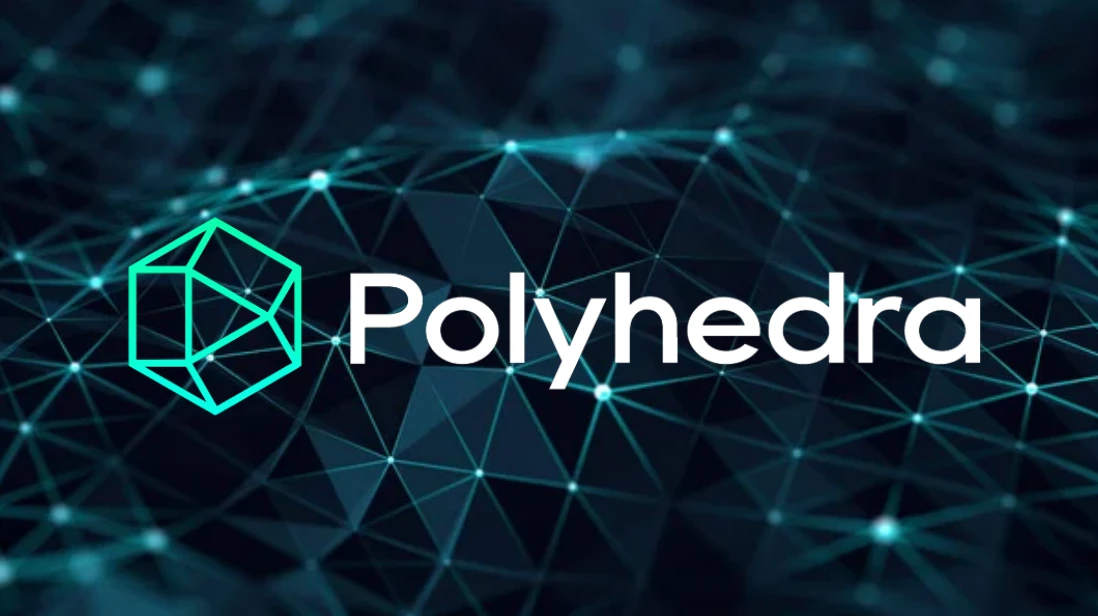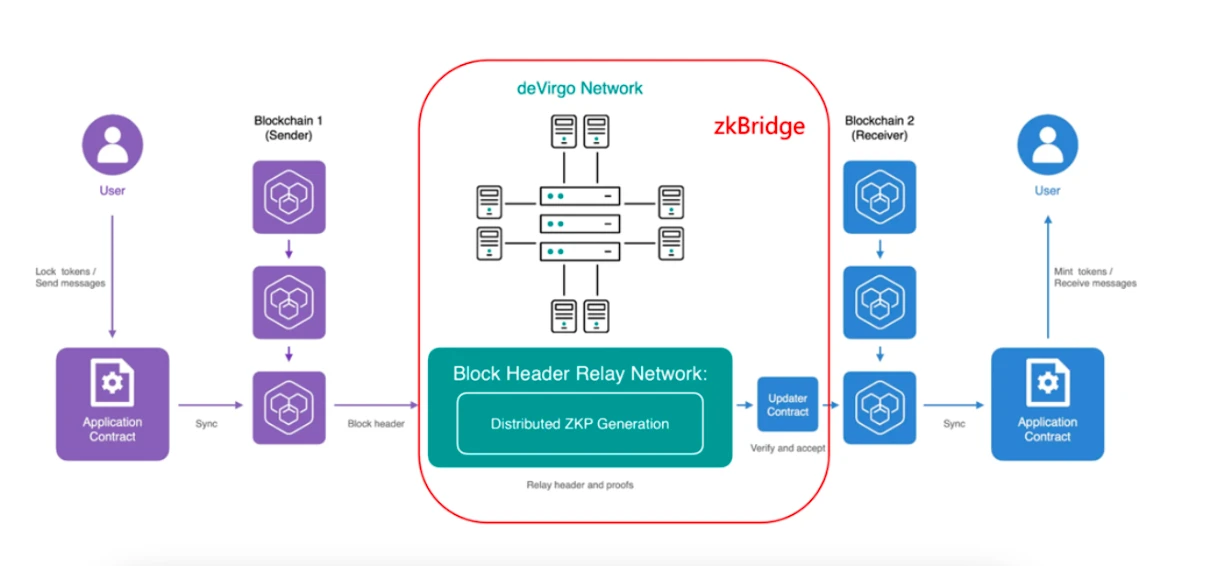Original | Odaily Planet Daily
Author | Liao

On March 19th, the full-stack zero-knowledge proof protocol Polyhedra Network officially launched its protocol token ZK and provided ZK airdrop rewards to early users and community contributors.
As the latest project of OKX Jumpstart, ZK landed on major exchanges such as OKX, Bitget, and Gate on the TGE day. As of the time of writing, ZK is temporarily reported at 3.55 USDT and has shown a relatively stable growth trend after overcoming short-term airdrop selling pressure.
A week before TGE, Polyhedra Network announced the completion of a $200 million strategic round of financing at a valuation of $1 billion, led by Polychain Capital, with participation from Animoca Brands, Emirates Consortium, Arkstream Capital, Mapleblock Capital, Hashkey Capital, UoB Ventures, Symbolic Capital, Longhash Ventures, MH Ventures, and Web3Port Foundation.
Public information shows that this is the fourth financing completed by Polyhedra Network in the past year.
In February 2023, Polyhedra Network completed a $10 million financing round, led by Binance Labs and Polychain Capital, with participation from Animoca Brands, Dao5, and ABCDE Capital.
In April 2023, Polyhedra Network completed another $15 million PreA round of financing, led by Polychain Capital, with participation from ABCDE Capital, Sparkle Ventures, HashKey Capital, Foresight Ventures, Kucoin Ventures, NGC Ventures, and Arcane Group.
In January 2024, Polyhedra Network also completed an A round of financing, with the specific amount undisclosed.
Including the latest strategic round of financing, Polyhedra Network has disclosed a total historical financing amount of $45 million.
Why can Polyhedra Network be favored by so many star VCs? How can its valuation continue to rise? In addition to the familiar zkBridge, where can Polyhedra Network's comprehensive zero-knowledge proof technology capabilities achieve breakthroughs? In the following article, we will gradually answer these questions by dissecting the existing and potential business of Polyhedra Network.
Existing landscape: Starting from the interoperability field
Polyhedra Network's positioning is a full-stack zero-knowledge proof protocol, which determines that Polyhedra Network's vision is to use the disruptive potential of zero-knowledge proof in trustlessness, interoperability, scalability, and other aspects to optimize various fields and components of the Web3 ecosystem.
Interoperability between multiple chains is the first area targeted by Polyhedra Network. In April 2023, Polyhedra Network officially launched the mainnet Alpha version of zkBridge.
zkBridge is the industry's first universal cross-chain interoperability protocol built using zero-knowledge proof technology, which is trustless, efficient, secure, and universal. Unlike common cross-chain bridges that rely on multi-signature contracts, zkBridge uses zero-knowledge proof algorithms to replace the third-party trust assumption of traditional cross-chain bridges. It has undergone rigorous proof and verification based on mathematics and cryptography, allowing the prover to securely and effectively enable the receiving chain to receive a state transition that occurred on the sending chain without relying on any external security assumptions.

Official data shows that as of the time of writing, zkBridge has covered 25 Layer1 and Layer2 chains, processed over 20 million cross-chain transactions, and has partnered with over 80 projects in various fields such as DeFi, GameFi, and infrastructure.
In addition to providing conventional homogeneous token cross-chain transfers, zkBridge also supports NFT cross-chain transfers and plans to achieve cross-chain support for Ordinals system assets on the Bitcoin network in the second quarter.
In addition to the main product zkBridge, Polyhedra Network's current business landscape also includes zkLightClient, a lightweight client based on zero-knowledge proof, various zero-knowledge proof algorithms including devirgo, and zkPoR for user exchange reserve proof, and more.
It is important to emphasize zkLightClient, which, in essence, is a cross-chain infrastructure built based on the LayerZero protocol. zkLightClient can be fully integrated with LayerZero's message transmission protocol, allowing application developers to easily build cross-chain applications on LayerZero using Polyhedra Network's zero-knowledge proof technology by simply modifying their integration configurations.
From a deeper perspective, the technical principles manifested as a product result in zkLightClient are more groundbreaking—using zero-knowledge proof to optimize batch verification of BLS signatures, significantly reducing the communication data size between verification nodes and full nodes.
In the case of zkLightClient, the client can verify 512 BLS signatures with a single zk-proof, requiring only 200-300 bytes of communication data, allowing verification nodes to sign each block, significantly reducing the time required for Ethereum to achieve "finality" from one epoch (32 slots) to one slot (12 seconds), providing a potential path for further scalability of Ethereum.
Recent developments: Moving towards the Bitcoin network
As existing business lines mature, Polyhedra Network has begun to look into other areas, attempting to bring more innovative results with its zero-knowledge proof technology. The increasingly prominent Bitcoin ecosystem has become the latest choice for Polyhedra Network.
At the end of March, Polyhedra Network partnered with Renzo to provide $1.8 billion in cryptographic economic security for its Bitcoin interoperability protocol through the integration of Renzo's Liquidity Backed Tokens (LRT) and ZK tokens' dual pledge mechanism, to achieve trust-minimized Bitcoin interoperability. Polyhedra Network also revealed that ZK token pledgers will receive income from cross-chain messages in the Bitcoin ecosystem in the future.
In addition, Polyhedra Network recently announced a brand-new method for directly verifying ZK proofs on the Bitcoin network.
As the latest developments such as the approval of Bitcoin ETF and the upcoming halving event have sparked unprecedented interest in Bitcoin research, the Polyhedra Network team has found that existing Bitcoin network scaling solutions, such as Layer2, currently have critical flaws in their verification methods—especially the flaws emphasized in the BitVM whitepaper. The main issue is the potential collusion between provers and challengers, which threatens the integrity of the proof and may lead to the malicious creation of invalid proofs.
To address these issues, the Polyhedra Network team has introduced an alternative solution, using ZK proofs based on FRI (Fast Reed-Solomon Interactive oracle proofs of proximity) as the final layer of on-chain verification. Compared to other ZK proof systems such as Groth16 or Plonk, FRI proofs have better efficiency and lower computational requirements. Considering the high operating costs on the Bitcoin blockchain, this efficiency improvement is crucial.
Polyhedra Network explained that in the future, the Bitcoin ecosystem will also see a large number of Layer2 scaling solutions, similar to Ethereum. However, the current Layer2 solutions on the Bitcoin network all face the problem of lacking native ZK proof verification. It is crucial to address this shortcoming in order to fully unleash the potential of the Bitcoin network. The proposed solution by Polyhedra Network is expected to address these issues and achieve universal programmability on the Bitcoin network, fully unleashing the potential of Bitcoin.
Long-term planning: Scaling Computing
Earlier this month, Polyhedra Network detailed the ultimate vision of the project in an official article—Scaling Computing.
In summary, Polyhedra Network hopes to accelerate the applications of Web3 by leveraging the exponential computational power provided by zero-knowledge proofs, eliminating the barriers brought by traditional computing methods. More concretely, Polyhedra Network aims to make the development process using zero-knowledge proofs as convenient as launching a website through its various solutions, helping developers efficiently tap into the full potential of zero-knowledge proofs.
Looking ahead, Polyhedra Network will gradually improve infrastructure such as zkCompiler and proof generation services. zkCompiler aims to simplify the process of writing high-performance ZK proof circuits, while its proof generation service allows developers to deploy their ZK circuits or code to Polyhedra Network's infrastructure. In terms of applications, Polyhedra Network plans to expand its services beyond the interoperability field to include multiple domains such as zkVM, zkEVM, and zkML.
According to the roadmap, Polyhedra Network is expected to deliver multiple related achievements in 2024, including but not limited to:
Launching the Polyhedra zero-knowledge proof generation service in the second quarter of 2024;
Enabling basic smart contracts on Bitcoin using zero-knowledge proofs in the third quarter of 2023, releasing the zkVM compiler, and zkVM instruction set architecture (ISA);
Integrating PWS with existing zkEVM in the fourth quarter of 2023…
A New Narrative, A New Beginning
Returning to our initial question, why can Polyhedra Network be favored by so many star VCs? And why can its valuation continue to rise, reaching over $3 billion after the ZK listing?
In short, the vision of Polyhedra Network is not limited to zkBridge alone, so its value cannot be measured by just a cross-chain interoperability protocol. Its value should stem from the optimization potential of zero-knowledge proofs for various domains in the Web3 world.
In the long run, after the ZK TGE, Polyhedra Network is embarking on a new narrative, opening a new chapter. In this process, various roles operating around ZK and the Polyhedra Network ecosystem are expected to receive continuous value feedback.
免责声明:本文章仅代表作者个人观点,不代表本平台的立场和观点。本文章仅供信息分享,不构成对任何人的任何投资建议。用户与作者之间的任何争议,与本平台无关。如网页中刊载的文章或图片涉及侵权,请提供相关的权利证明和身份证明发送邮件到support@aicoin.com,本平台相关工作人员将会进行核查。




